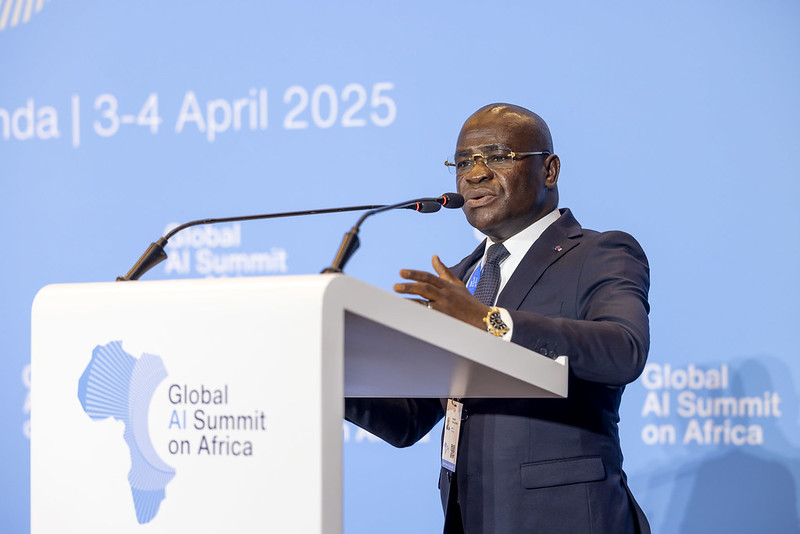
Excitement is building in Kigali, Rwanda, as the Global AI Summit on Africa kicks off this week, bringing major developments and opportunities for innovation across the continent.
The summit, held April 3-4, 2025, follows a groundbreaking announcement by Cassava Technologies, a company founded by Zimbabwean billionaire Strive Masiyiwa, which plans to launch Africa’s first “artificial intelligence factory.”
This ambitious project will be developed in partnership with Nvidia, the world’s leading producer of AI-powered computer chips. Nvidia’s powerful GPU or graphic processing unit technology, which is crucial to training and deploying AI systems, will first be installed in Cassava’s data centers in South Africa this June.
They are already getting started in order to expand to other countries including Egypt, Kenya, Morocco, and Nigeria. Africa has often struggled to keep pace in the global AI race due to limited access to computing power.
According to Zindi, a network of 80,000 AI developers across 52 African countries, only five percent of AI professionals on the continent have access to the hardware needed for meaningful research. Without GPUs, developing AI solutions takes significantly longer compared to places like the U.S. or Europe.
Many believe this will be a turning point for the continent. Although Cassava hasn’t revealed all the details of its plan, the company says its new AI infrastructure will give African businesses, startups, and researchers the tools they need to develop and scale AI technology, without having to look outside the continent.
However, cost has long been a barrier. Some of Nvidia’s most advanced GPUs cost up to $40,000 which is an amount that’s out of reach for most African innovators. In Kenya, the price of a single GPU represents 75% of the average person’s income. As a result, African developers have often relied on foreign cloud platforms like Amazon Web Services or Google Cloud, which can be slow and expensive due to the distance from local users.
However, with Nvidia’s chips now coming to African data centers, local innovators will have faster, cheaper, and more reliable access to AI tools. Celina Lee, CEO of Zindi states, “It could make AI development in Africa more affordable and accessible while helping developers build solutions tailored to local needs – whether that’s in healthcare, education, agriculture, or finance.”
This investment will create huge opportunities as it has the potential to reshape Africa’s economic structure. The move could also help address global inequalities in AI training data. Currently, African languages and cultures are underrepresented in AI systems, leading to biased models such as facial recognition tools that struggle to identify darker skin tones.
With better tools and infrastructure, African AI experts can build models that better reflect the diversity of the continent. Of course challenges remain, including unreliable power grids and limited access to high-end devices for everyday users. However, leaders like Tsado remain hopeful. AI is no longer just for Silicon Valley- Africa is on the rise too!

